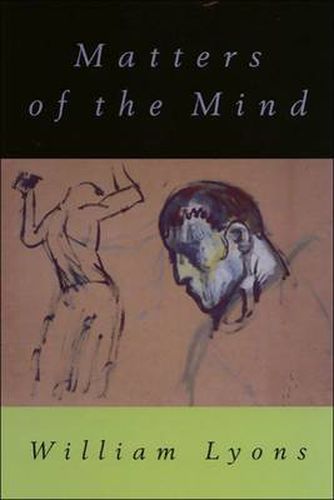Readings Newsletter
Become a Readings Member to make your shopping experience even easier.
Sign in or sign up for free!
You’re not far away from qualifying for FREE standard shipping within Australia
You’ve qualified for FREE standard shipping within Australia
The cart is loading…






An account of the very dramatic shifts of viewpoint in thinking about the mind in philosophy. The narrative also draws upon work in psychology, neurophysiology and computing. The book begins with an attack on Cartesianism by behaviourism in both philosophy and psychology at the turn of the last century. It then describes how behaviourism was itself supplanted by the uncompromising, brain-centred, materialist theories of mid-century, such as the Identity Theory and Eliminative Materialism, and how, influenced by the coming of computers, these theories were in turn replaced by Functionalism, which depicted minds as the brain’s functional program or software. Finally, the narrative describes how, at the end of the 20th century, theorizing about the mind-brain became increasingly unsettled by the hard problem of the relationship of consciousness to brain processing, and how Functionalism was forced to compromise. The final chapter offers a synoptic view of progress achieved and work still to be done.
$9.00 standard shipping within Australia
FREE standard shipping within Australia for orders over $100.00
Express & International shipping calculated at checkout
An account of the very dramatic shifts of viewpoint in thinking about the mind in philosophy. The narrative also draws upon work in psychology, neurophysiology and computing. The book begins with an attack on Cartesianism by behaviourism in both philosophy and psychology at the turn of the last century. It then describes how behaviourism was itself supplanted by the uncompromising, brain-centred, materialist theories of mid-century, such as the Identity Theory and Eliminative Materialism, and how, influenced by the coming of computers, these theories were in turn replaced by Functionalism, which depicted minds as the brain’s functional program or software. Finally, the narrative describes how, at the end of the 20th century, theorizing about the mind-brain became increasingly unsettled by the hard problem of the relationship of consciousness to brain processing, and how Functionalism was forced to compromise. The final chapter offers a synoptic view of progress achieved and work still to be done.